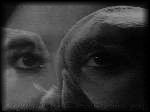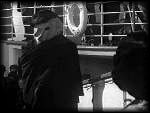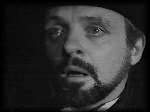"The story of the Elephant Man was about someone who was a monster on the outside but who inside was a beautiful and normal human being you fell in love with. He was a monster who wasn't really a monster. I like human conditions that are distorted. It makes the undistorted stand out. I like psychological twists, too."
"I think everybody feels a bit like an outsider. Also I think everybody hides many things inside them."
"Chris and Ericīs script was very good, but so close to the real story that it started by going up and then it flattened out. We restructured the whole thing and wrote a lot of new scenes. It was a team effort. The beginning and the end werenīt in the original script. I learned a lot from this work because I had never done this kind of writing before."
"I was going to work with really great actors on a true story from Victorian times in a country I didnīt know. At first, I thought I wouldnīt be able to handle it. I couldnīt get into the atmosphere. I coudnīt even find the locations I wanted. Then, one day, I was at an abandoned hospital in the East End of London and it clicked. Everything was there: the atmosphere, the rooms, the long corridors."
"I always thought of it as a black and white film. Black and white immediately takes you out of the real world. To go back in time and have this mood of the Industrial Revolution the places, the stark feeling black and white is perfect. Most of my favourite films are black and white"
"Well, I'm flipped out over industry and factories - sounds as well as images ... The Elephant Man takes place when industrialization was still starting. It was the beginning of Eraserheads times. I was hoping that the Victorians would have had more machinery around. There wasn't a lot, but what they did have made a lot noise and a lot of smoke."
"Well, The Elephant Man was a pretty successful picture. But it was, you know, based on a true story. It was further away from what you say, a personal film, although I felt very personal about it and I got into that world, and I feel I didn't compromise."
David Lynch choose about a year before the start of shooting to do the make up himself. He took a plastercast of John Hurt , and worked away in seclusion for nine months. The two days before they
started shooting, they tried it on John Hurt but it didn't work.
"I had an idea for a suit which would look really organic, and wouldn't require five hours of makeup every day, in theory this was incredibly perfect, It wasn't just a suit. It was layers of stuff, and there would have needed to be some blending between John and the suit everyday. But it didn't work. There was a thousandth of a second when I put it on John Hurt the first time, when it looked alright. And then in the next ten thousandth of a second, it hit me so hard that there was no way. And the next
week and a half was one of the darkest times of my life."


